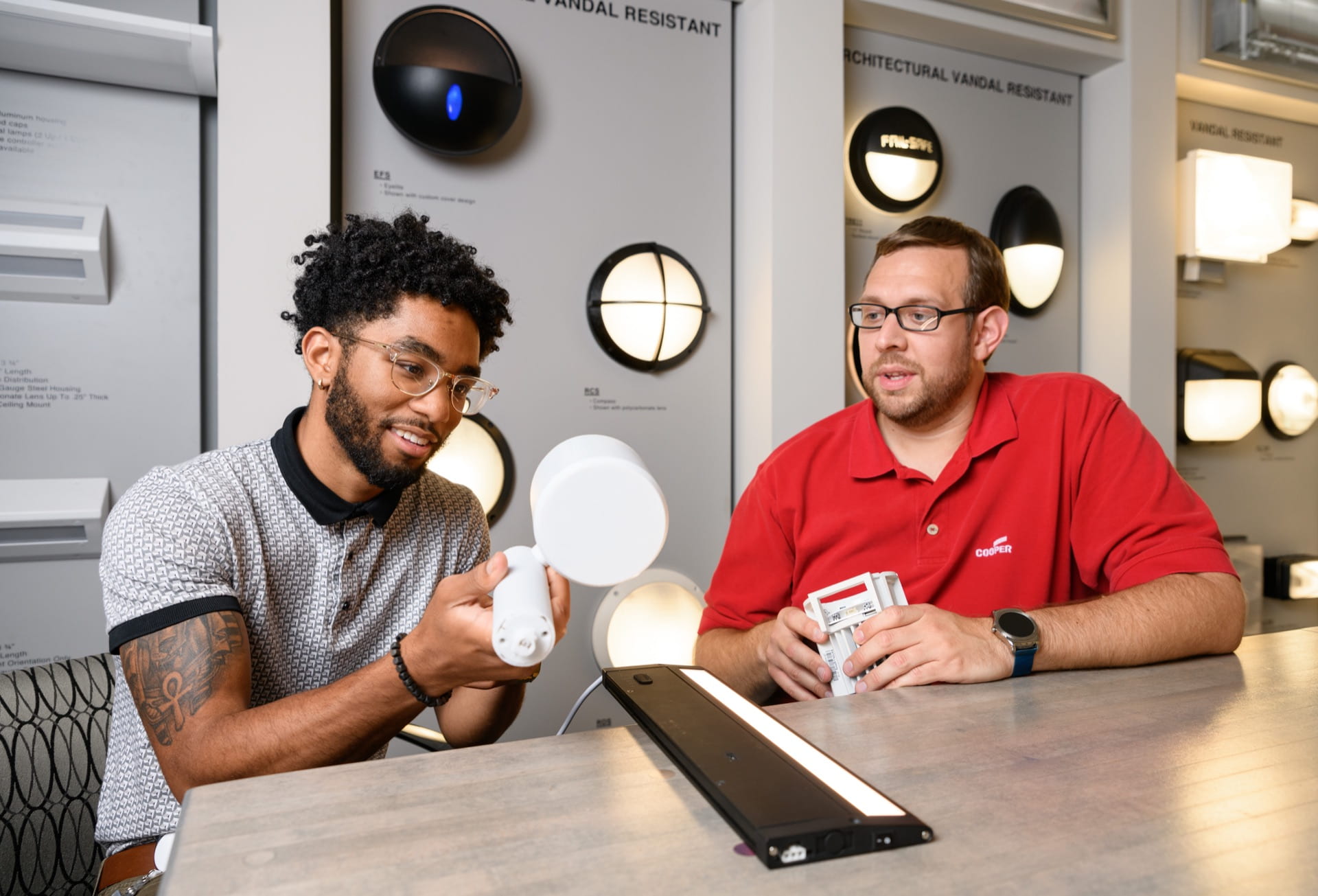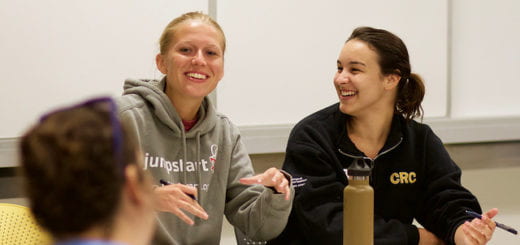Supporting Black Students – Students’ Perspectives

by Camryn Burke, Class of 2022
(See more of Camryn’s work on the blog!)
The past several months in quarantine have been stressful and unpredictable for all of us. Amongst the most shocking things to happen has been the murder of George Floyd by police officers, in addition to the deaths of Ahmaud Arbery, Breonna Taylor, and—most recently, in our own city—Rayshard Brooks. However, the murder itself is not necessarily what’s shocked me; we have discussed and protested police brutality and the unjust—rarely punished–murders of black people for decades.
I was 9 years old when there were protests for Oscar Grant, and now, as I am a 20- year- old college student, not a single year has gone by that I haven’t heard about another black man or woman experiencing the same fate at the hands of police or prejudiced civilians. Hearing that it’s happened again, during a global pandemic no less, has just made me feel, more than anything, overwhelmingly tired.
What’s shocking has been the response to his death; enormous protests throughout the entirety of the United States and even the world have been going on for months in what will go down as one of the biggest protests in history. Additionally, it seems like more non-black people are actually interested in learning what they could do to be better allies to both the Black Lives Matter movement and to black people, in general. I have seen people trying to learn what they could do to support black protestors, black voters, black businesses.
I decided to interview a few of my fellow black students at Georgia Tech to ask about their experiences and what their advice would be to faculty for creating a more supportive environment for them.
What has been your classroom experience at Georgia Tech as a black person? 
There aren’t many black students at Georgia Tech, so it can often be a socially isolating experience to be one of the few on campus. However, there are some great Black Student Organizations on campus that students can reach out to if they need a little more support.
- “Often I walk into classroom where few (or none) of the students look like me or share the same cultural experiences. During my first year, it intimidated me sometimes, but I’ve grown out of that. And fortunately, there are a lot of programs like the Society of Black Engineers (NSBE), African American Student Union (AASU), and Office of Minority Education and Development (OMED) that have been grounding me by allowing me to network, socialize, and learn with other black students and professionals.”- (Student in Mechanical Engineering (ME), 3rd Year)
- “My classroom experience thus far has varied though most of it has been a tough and trying experience. Georgia Tech is an institute that prides itself on rigor and setting the bar high. I’m sure aspiring to meet the bar has never been easy for any student, but I feel I’ve had to make a special effort to keep up in certain classes due to a starting deficit in networking, resources, and tools that my non-minority colleagues often seem to have. Thanks to OMED and housing, I have been able to develop a stronger network of people to engage in coursework with and interact, which has helped me feel more comfortable at the institute. ”- Cameron Bennet (Computer Engineering, 3rd Year)
- “In classes where I’ve been the only black person, whether or not I’ve taken notice has depended on my sense of belonging. When I have taken notice, it was related to a lack of belongingness with my fellow peers or when matters related to the black community would arise and I had no one in the space to relate to. When I haven’t taken notice, it was an atmosphere where I felt more belonging and wasn’t made to bring great attention to my race. In courses I’ve taken with other black peers, it’s been an easier feeling a sense of belonging and comfort while taking the course. If there was something going on nationally or locally pertaining to black matters, I wouldn’t be the only one advocating for empathy and support from professors. At times, it was hard to find a group or person to study within courses but if I had someone in the classroom that understood that struggle, we would group together. Overall, though, my experience has been transformative in that I’ve had to learn to work in spaces where people that don’t look like me, act like me, or understand me.” -Mykala Sinclair (Mechanical Engineering, 6th Year)
While there isn’t anything that instructors can do personally to increase the number of black students in their courses, I believe that they can play a very important role in helping the students—and particularly the black students—in their courses feel less isolated. Like my peers, I have also struggled to make social connections in courses and had to learn how to adapt to an environment where I was surrounded by peers who do not look like me. This has positive aspects to it, in that it pushes you out of your comfort zone and –as Mykala stated—teaches you how to work in spaces different than what you are familiar with around people who are not familiar with you or your community. However, if faculty wish to establish a less isolating environment for their students, I think they should make an effort to encourage student interaction and bonding in their classroom when they can.
In the wake of the recent BLM protests, many people are beginning to re-evaluate racial dynamics and have more discussions acknowledging this. Do you think it’s important for instructors to do the same?
discussions acknowledging this. Do you think it’s important for instructors to do the same?
It can be very difficult to focus on classes and work when you’re consistently hearing about the mistreatment and abuse of your community on the news and social media. It can be even more difficult when it feels like you’re the only person in your classroom who cares.
- “I think it’s very important for instructors to discuss racial dynamics in the classroom with each other. A lot of professors operate on the premise that the classroom is a neutral educational place free from the influence of race, but race has an unconscious impact on a professor’s perception of the class and their interactions with students, which inevitably impacts the students’ performance.”- (3rd year ME student)
- “I think it can be important to acknowledge them, given an appropriate need and scenario. I know some students do not always want to feel as though they are being singled out, even if it is supposedly to improve their experience, while others almost demand it. Even if a professor can recognize the need to acknowledge the issue, I think it’s more important to ensure the “how” of the acknowledgement is done properly and in a way that genuinely improves everyone’s experience. This isn’t always easy, so I try to be understanding of instructors who put the effort forward.”- Cameron
- “It is very important that discussions of race, inclusivity, systemic racism, and bias are brought to the forefront everywhere. The reason being that they are relevant in every space where people exist and where relations are being made. This includes instructor-student relations. Because students and instructors interact frequently, I think it’s the perfect opportunity to take advantage of this consistent audience to discuss these topics. Instructors bringing these conversations to the forefront is lending respect, comfort, truth, and a greater comprehensive understanding of various perspectives and how they relate to us individually day-to-day.”- Mykala
Like my peers, I wholeheartedly believe it’s important for professors to discuss racial dynamics, especially with each other. As a liberal arts student, I have taken many classes that often center around discussion about social issues, and there is a stark difference in how these classes are taught by black professors and how they are taught by non-black professors. There’s a certain level of confusion around how to discuss race and racial dynamics, not just in the classroom but in general, and it often feels like it falls on the one or two black students in the class to educate the entire room on racial issues. It’s important for professors—as Cameron mentioned—to learn the proper way to acknowledge racial issues, whether it be in reference to what’s going on in the world or just in-class discussion about works exploring social/political issues. To learn how to do that, instructors should try to educate themselves more deeply on racial dynamics and have more discussions amongst themselves about racism and inclusivity.
What do you think faculty could do to create a more supportive classroom environment for black students?
It’s important for Georgia Tech to do more outreach to black communities and encourage more black students to come to the university. It’s important for instructors to focus on creating a supportive learning environment for the students they have. The best way to do this is to listen to their students.
- “I think more instructors should encourage and incentivize group learning in their classrooms and assignments rather than individualistic learning. When you are the only black person in a class, it can feel difficult to really feel comfortable in the learning environment. Group learning helps to establish mutual connections and friendly relations between students and fosters a better learning environment for not only black students but the entire classroom.”- (3rd year ME student)
- “In my experience, being able to personally interact with a professor when I have concerns always makes me feel heard. I think it’s wonderful when professors provide contacts for students as well as office hours that people can utilize for one-on-one interaction. If there was a way to provide that same accountability and responsibility to the professor, I think it greatly encourages improvement and understanding on both ends. More specifically, I think it’d be nice to encourage instructors to schedule one-on-one’s with struggling students so that both sides can discuss any concerns and how to work through them.”- Cameron
- “The days leading up to the first day of class and syllabus day itself are the most important days. Those are key times to set the tone of comfort, understand, support, and positivity. I think things like being clear with intentions of supporting students and being open to constructive criticism, stating ground rules for basic respect in the classroom and the consequences of not following these rules, including resources available to underrepresented groups in the syllabi, are all small ways to make minority students more comfortable. I also think two of the largest things instructors can do are to believe black students that come forward with accounts of prejudice, racism, and/or discomfort and show empathy and understanding of matters related to the black community and how it shows up in the classroom. For example, when heights of racial tension arise, check-in on students that may be affected and/or make an announcement directing students to proper resources.”- Mykala
As a black student at Tech, I can say that these are issues that have weighed on me and many of my peers for a long time, and while it is tragic that these conversations only arose after horrible violence, I’m glad that we are finally having them. Black students make up less than 10% of the Tech population. I have on many occasions found myself to be the only black woman, if not the only black person at all, in the room, and it is one of the most isolating feelings in the world. And it can certainly make it hard to feel comfortable in your learning environment, especially when you’ve come from a high school where the majority of your peers looked like you, as I did.
I have become accustomed to the Tech learning environment, but I still think it’s important for instructors to try to make their minority students feel more supported in the classroom. Instructors intend to treat everyone in their courses equally. In theory, this is a good way to approach one’s students, but equality assumes that they are all on an even playing field to begin with, coming from the same backgrounds and having similar experiences; what we need is equity.
I believe instructors have good intentions in how they approach their students, but it’s important to understand that all students are different; we’re not of the same educational, racial, or cultural backgrounds, and these are all components that play a role in how we react to our learning environment. Being willing to educate yourself and to listen to the voices of your students and your peers is an important step to learning how to create a more equitable classroom. It can be hard to figure out how to go about doing this but listening to the words shared by my peers above is a great start.




